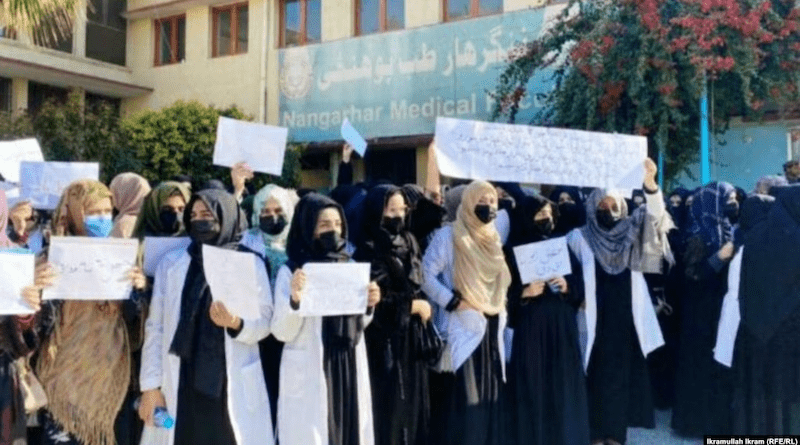Pressuring The Taliban: Ensuring Women’s Right To Education In Afghanistan – OpEd
By Anwar Iqbal
In the wake of the Taliban’s return to power in Afghanistan, the world faces a critical moral and ethical challenge. While the international community grapples with various aspects of the Taliban’s rule, one fundamental issue stands out: the urgent need to pressurize the Taliban to allow women’s access to education. This piece discusses the vital role education plays in the lives of women and society at large, examines the Taliban’s historical stance on women’s education, and discusses why the world must take a collective stand to ensure that Afghan women can exercise their right to education.
Before delving into the importance of women’s education and the pressing need to advocate for it in Afghanistan, it is crucial to understand the historical context. The Taliban’s previous rule in the late 1990s saw severe restrictions on education, especially for women. Schools for girls were forcibly closed, female teachers were barred from working, and women were excluded from the public sphere. This history casts a long shadow over the current situation in Afghanistan.
Education is a fundamental human right and a powerful tool for personal and societal development. For women, education is not merely a privilege; it is a path to empowerment, independence, and a brighter future. When women have access to education, they gain knowledge and skills that allow them to make informed decisions, improve their socio-economic status, and contribute to their communities. Furthermore, education empowers women to participate in the workforce, fostering economic growth and reducing poverty. Ultimately, women’s education benefits society as a whole by promoting gender equality, reducing gender-based violence, and driving progress in all sectors.
The Taliban’s Stance on Women’s Education
The Taliban’s history reveals a grim picture when it comes to women’s education. During their previous rule, girls were systematically denied the opportunity to learn, and female teachers were silenced. Despite promises of a more moderate approach, there have been numerous reports of the Taliban’s restrictions on women’s education since their return to power in 2021. Female students and teachers have faced violence, harassment, and discrimination, preventing them from accessing educational institutions.
The international community has expressed deep apprehensions about the Taliban’s education policies, particularly regarding women and girls. These concerns are not limited to the education sector but are connected to broader human rights issues. The global development goals, which aim to promote gender equality, cannot be achieved without securing women’s access to quality education. By restricting women’s education, the Taliban is not only violating human rights but also undermining the prospects of a stable and prosperous Afghanistan.
To ensure that Afghan women can access education, the world must exert diplomatic, economic, and political pressure on the Taliban regime. The international community can utilize its leverage to encourage the Taliban to reverse their restrictions on women’s education. Sanctions, economic aid, and diplomatic negotiations all present viable tools to influence the Taliban’s behavior. Several countries and international organizations have already taken a stand for women’s education in Afghanistan. Their concerted efforts signal that the world will not stand idly by while Afghan women’s rights are denied.
Non-governmental organizations (NGOs) play a vital role in supporting women’s education in Afghanistan. They provide educational opportunities, resources, and advocacy for Afghan women and girls. However, they face significant challenges, including security risks, funding issues, and logistical hurdles. Despite these obstacles, their work is invaluable in the fight for women’s education in Afghanistan.
Failing to pressurize the Taliban to allow women’s education has far-reaching consequences. Not only does it perpetuate human rights violations, but it also creates a breeding ground for instability and extremism. Afghan women’s lack of access to education weakens the fabric of society, hinders economic development, and limits opportunities for the entire nation. Additionally, inaction on women’s education sends a dangerous message that the international community is willing to compromise on fundamental rights and principles.
Conclusion
The international community must unite in its demand for the Taliban to allow women’s access to education in Afghanistan. Education is a fundamental human right and a powerful driver of progress and development. By denying women this basic right, the Taliban not only perpetuates human rights violations but also obstructs the nation’s growth and stability. The global community has the diplomatic, economic, and political tools to influence the Taliban’s policies. The time is ripe to exercise these instruments and ensure that Afghan women can exercise their right to education, thereby contributing to a more equitable, peaceful, and prosperous Afghanistan.

